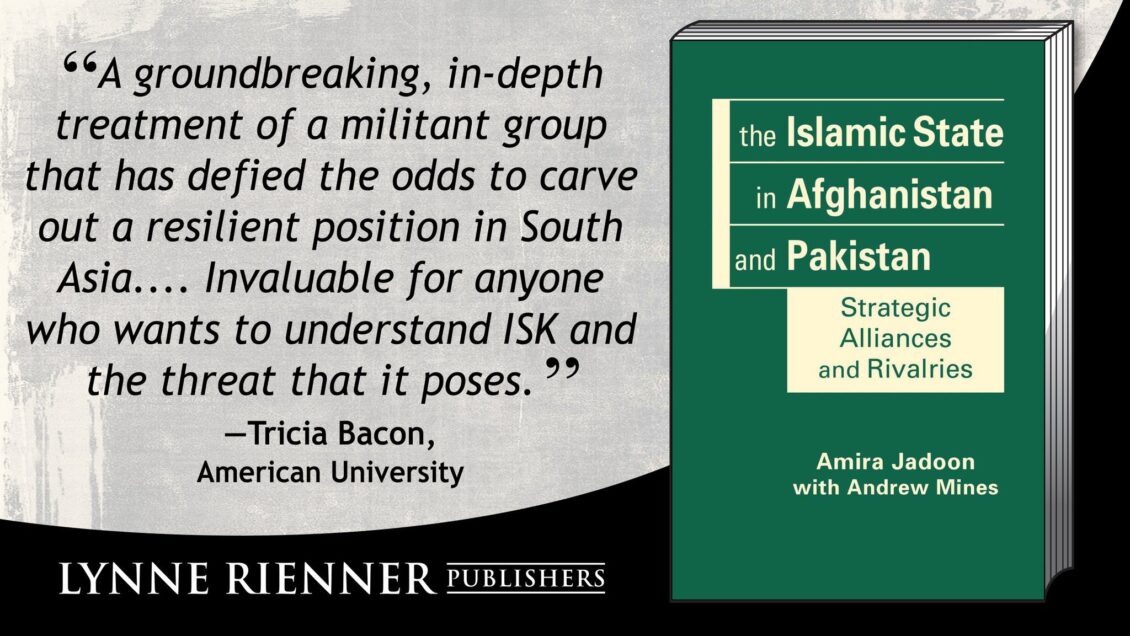In her latest book, “Islamic State in Afghanistan and Pakistan: Strategic Alliances and Rivalries,” political science assistant professor Amira Jadoon explores the Islamic State Khorasan (ISK) and its rise to power since 2015.
From 2015-2018, ISK waged a deadly campaign across Pakistan and Afghanistan, establishing itself in Nangarhar, Afghanistan and becoming one of the world’s deadliest terrorist groups by 2018. ISK’s initial successes provoked intense counterterrorism efforts against the group, including United States airstrikes, Afghan government operations as well as clashes with the Taliban. These took a major toll; however, despite this pressure, ISK rebounded and was named one of the world’s deadliest groups again last year.
“The book sheds light on how inter-group relationships between militant organizations can influence their operational behavior and long-time survival,” Jadoon said. “While alliances between groups have been shown to boost violent organizations’ lethality, much of the literature has focused on why and how terrorist alliances emerge, rather than the effects of alliances.”

Jadoon first began to study ISK while working at the Combating Terrorism Center at West Point in New York. Her research was inspired by seeing the group emerge as a pressing threat in South and Central Asia – a region that already hosts a large number of militant groups, including anti-state, sectarian and ethnonationalism groups. And at the time, there were ongoing U.S. and international efforts to stabilize Afghanistan.
“Understanding the group’s strategy and tactics, and its potential sources of strength and weaknesses was critical to inform current and future counterterrorism and stabilization efforts,” Jadoon said. “Today, ISK is a growing threat for all dimensions of human security, and the longer it persists with its extremist ideology and tactics, the more likely it is to exacerbate political violence and instability across South and Central Asia.”
The book provides an overview of the complexity of the terror militant landscape in South Asia and highlights the security implications of cooperation and competition between violent armed non-state actors such as the Islamic State and local jihadist groups. Jadoon, along with her co-author Andrew Mines, identifies the key factors that explain ISK’s rise, decline and subsequent resurgence in Afghanistan and Pakistan and traces the evolution of ISK’s strategy since 2015, as it adapted to a changing environment. It offers unique insights into how ISK’s rivalries and alliances contributed to its capacity, resurgence and survival.
Joe Ura, chair of the Department of Political Science, said that Islamic State in Afghanistan and Pakistan: Strategic Alliances and Rivalries is an insightful analysis of the Islamic State’s operations in South Asia and a vital resource for scholars and policymakers addressing terrorism and political stability in that critical region.
“Dr. Jadoon’s book is a big step forward for scholarship on terrorist organizations, which, of course, is an area with important practical implications for international stability and American national security,” said Ura. “Her contributions to this important conversation are beneficial to political scientists and policymakers in the United States and across the world.”
Additionally, the book illustrates that the strategic selection of its alliances and rivals has been key for ISK to maintain a robust talent pipeline and continue its violent campaigns. It furthers academic and public understanding of how violent extremist organizations’ alliances and rivalries can both contribute to its endurance under challenging circumstances.
The Department of Political Science is a part of the College of Behavioral, Social and Health Sciences, a 21st-century land-grant college joining together a unique combination of schools and departments: Communication, Nursing, Parks, Recreation and Tourism Management, Political Science, Psychology, Public Health Sciences and Sociology, Anthropology and Criminal Justice. These areas have distinctive characteristics and missions – all joined together by a common thread of service to people and communities.
Get in touch and we will connect you with the author or another expert.
Or email us at news@clemson.edu

